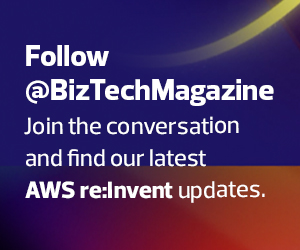How to Develop a Future-Proof Data Strategy
Sivasubramanian said AWS has learned from working with its customers that there are three core elements to a sound data strategy. “First, you need a future-proof data foundation supported by core data services,” he said. “Second, you need solutions that weave a connective tissue across your entire organization. And third, you need the right tools and education to help you democratize your data.”
Sivasubramanian noted that the term “future-proof” is being widely used to mean very different things. “My definition of a future-proof foundation is clear: It means using the right services to build a foundation that you don’t need to be heavily rearchitecting or incur technical debt as your needs evolve,” he said. The volume and types of data will continue to change, and organizations must be prepared to evolve as well.
He listed four key elements he said should be included in a future-proof data foundation:
- Tools: “It should have access to the right tools for all workloads and any type of data so you can adapt to changing needs and opportunities.”
- Scale: “It should be able to keep up with the growing volume of data by performing at a really high scale.”
- Value: “It should remove the undifferentiated heavy lifting for your IT and data team so you can spend less time managing and preparing your data and more time getting value from it.”
- Security: “It should have the highest level of reliability and security to protect your data stores.”
RELATED: Find out more about how observability can make your data more resilient in the cloud.
How Expedia Is Extracting the Value of Data Through Machine Learning
Sivasubramanian was joined by Rathi Murthy, Expedia’s CTO and president of Expedia product and technology. No matter where an organization is handling the data it generates, Murthy said, data is the “key to drive our innovation and our long-term success.”
“Data is our competitive advantage,” Murthy said as she explained how Expedia has used automation to leverage the data it collects. “Earlier this year, we launched price tracking and predictions. This uses machine learning and our flight shopping data to map past trends and future predictions for the prices for your flight route.”
She offered another relatable example of how the travel site uses data analytics to enhance the customer experience. Expedia has attempted to remove some of the complexity involved in comparing hotel rooms by leveraging AI to gather information regarding room features, upgrades and amenities all together on one page so users can easily compare different hotel types and make more informed choices. “Every time a traveler interacts with us, we collect more data, our models become smarter and our responses become more personalized,” she said.














